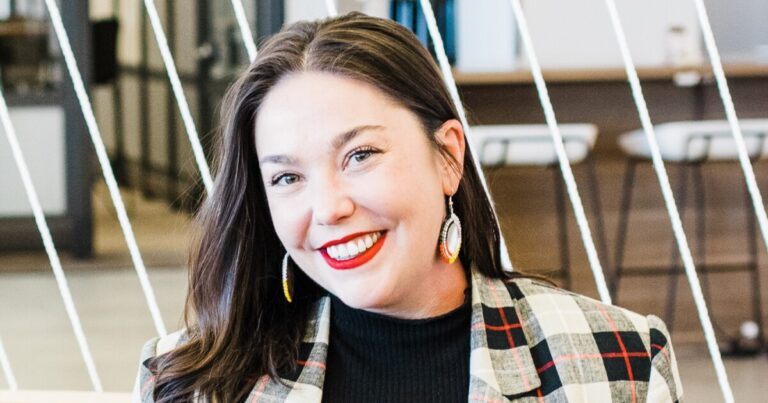The startup had a niche audience —
Last summer, two years after Totem publicly announced its launch plans, it closed its doors.
“We built an ethical business model that showed it is possible to serve ‘at risk’ or ‘niche’ populations when you build holistically and leverage the broader needs of their communities through value-added services like payments,” wrote Buker, also CEO of Totem. ,
Several other so-called
Buker did not respond to a request for comment. But she described the “perfect storm” of issues that contributed to Totem’s demise in comments on a
The company raised a little less than half of what it wanted in its pre-seed round, she said. It raised funding from impact investors rather than traditional fintech venture capitalists, who told Buker they liked the idea but didn’t know enough about tribal economies to invest.
The extension also failed. Buker intended to hire staff to expand Totem’s payment mechanism with new funds, so tribes could pay their benefits electronically through the app. But one
Shortly after Totem launched its B2B product for tribes, its sponsor bank, First Pryority Bank in Pryor, Oklahoma, left the BaaS space entirely. Other financial institutions, including
“By that time, the standards for companies looking for a banking partner had already risen considerably,” Buker writes. “…With only one very small tribal customer and other contracts still months away, we simply could not escape the confluence of circumstances that led us to cease operations.”
Aaron Dillard, CEO and president of First Pryority, said his bank, with $450 million in assets, decided to withdraw due to the “extremely high regulatory threshold” imposed by regulators during the the past year rather than by a single fintech.
“The threshold is too high and the cost too prohibitive for us to stay in space,” Dillard said. “Amber had a great niche idea and I think it will be successful in the future.”
Differentiation is a factor that increases the chances of survival, but it is not enough. The cost of customer acquisition, the need to monetize beyond interchange revenue, the difficulties in raising sufficient capital and

“Traditional banks have improved their offering in terms of the products they offer to their customers,” said
This leaves the question of how a
Jimmy Chen asks himself the same questions.
Chen was an angel investor in Totem’s
“We’re in the process of trying to make the business work,” he said.
Chen theorizes that there are four main ingredients in the recipe for a successful neobank. The first is to find a proprietary “edge” in user acquisition.
In its case, adding a debit card to the Propel lineup as a way for users to store and spend government benefits was a natural extension. (Sutton Bank in Attica, Ohio, provides the debit card.)
“We’re promoting it to existing users instead of trying to play auction on Facebook,” he said.
Gotsch also points out that customer acquisition is an obstacle.
“The cost of customer acquisition should be reasonable and decrease over time,” she said.
Another element is monetizing beyond interchange revenue without charging end users directly – something Totem aspired to do itself. Many niche neobanks target underserved customers, who often have less to spend in the first place, meaning interchange revenue will be lower.
Gotsch points out that it is historically difficult – and costly – to reach and retain unbanked or underbanked customers as permanent customers, due to distrust of financial services, reliance on liquidity, cyclical revenues and high churn.
In Propel’s case, the app serves as a marketing channel for companies that want to reach their users, like Amazon with its discounted Prime membership for eligible government assistance recipients.
Chen also believes that neobanks need a “strong technical team, willing to achieve many small victories,” he said. “Succeeding in the neobanking sector is not a quick fix; it’s a lot of bullets.”
Finally, startups need enough capital to support all of the above, “which is
Gotsch acknowledges that lawsuits may be a sticking point here.
“As a new investor, the last thing you want your money to fund is a lawsuit over a prior issue,” she said. “You want your money to fund growth.”
A good idea will nevertheless compete with other great ideas.
“Ultimately, loyalty to your mission or brand has to overcome some pretty tough challenges from competitors with highly developed loyalty programs, such as airline rewards, to become the provider of choice,” said Curt Queyrouze, president of Coastal Community Bank in Everett, Washington.
For Jason Henrichs, founder and CEO of community bank consortium Alloy Labs Alliance, there must be value for the customer beyond an affinity with the neobank’s mission. (The Alloy Alchemist Fund participated in Totem’s pre-seed funding round.) Henrichs points out
“Affinity doesn’t mean much to people,” he said. “It’s about
This was also something Totem was trying to resolve. In a 2022 interview, for example, Buker emphasized that credit building would be an important part of Totem, as Native Americans are targeted with expensive credit coaching. In 2023, she highlighted that mortgages specifically aimed at indigenous people were on her roadmap.
Despite the headwinds, Queyrouze has seen firsthand that some of Coastal’s fintech partners have a “passion for their mission (that) has created a small but powerful loyalty among a core contingent,” he said .
“I’m watching a number of programs gain traction and gain momentum,” Queyrouze said. “Many programs have found the right mix and will survive.”
In his comments on Shevlin’s LinkedIn post, Buker — who is now a senior innovation strategist at Chesapeake Bank in Kilmarnock, Virginia — expressed optimism about another Totem one day.
“I’ve talked to people who serve tribes through various prepaid card solutions and they all are desperate to reduce their costs,” she wrote. “If the

